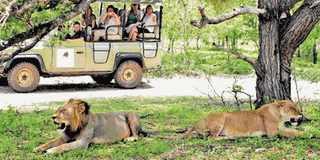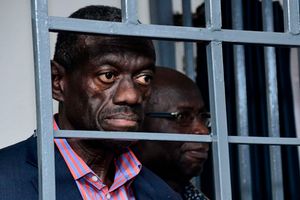Tanzania opens bids linked to Stiegler’s Gorge power generation project

What you need to know:
The project, when completed, is expected to add 2,100MW to the national grid, bringing the total installed capacity to 3,651MW.
Tanzania has opened bids by companies seeking contracts to clear forests within the Selous ecosystem, a world heritage site, in preparation for the construction of the Stiegler’s Gorge hydroelectric dam.
This signals another step in the implementation of the project that the government says will help solve the country’s power shortage.
The project, when completed, is expected to add 2,100MW to the national grid, bringing the total installed capacity to 3,651MW.
The Tanzania Forests Services (TFS) had invited bids for clearing 148,000 hectares of forestland.
The tender document seen by The Citizen shows that TFS is looking for eligible companies to buy trees with a total volume of about 3.5 million cubic metres in Rufiji district, distributed into six manageable blocks.
TFS chief executive, Prof Dos Santos Silayo, confirmed receiving the bids.
Energy Minister Medard Kalemani had said the $2 billion hydropower project, Tanzania’s biggest, will be implemented from July this year.
The government identified the project to be implemented alongside the $215 million Kidunda Dam within Selous ecosystem. The project will be implemented in three years.
Contested
But conservationists have opposed the project warning that Selous Game Reserve could be removed from the list of premier and sensitive conserved areas listed by Unesco.
Asukile Kajuni, a lobbyist, said that the Unesco Committee had set out several criteria for listing conservation areas into world heritage sites.
He wants the government to conduct a strategic environmental assessment in accordance with the Environmental Management Act of 2004, to determine the possible effect of the development on the environment.
The wildlife conservation group WWF said in its 2017 report that the hydropower project would affect tourism and wildlife conservation in the reserve, and that 200,000 people who farm and fish would lose their livelihoods.
Germany through Frankfurt Zoological Society and the WWF are key donors to the conservation of Selous Game Reserve through anti-poaching and community outreach programmes.
Last year, the Germany government released €18 million ($21 million) to help conservation activities in the game reserve.
The World Bank is the other international institution currently funding tourism development in Southern Tanzania under which Selous falls.




